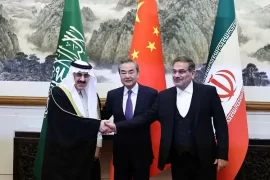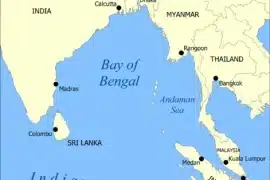The Bhutan-China border dispute revolves around the boundary between the two countries, particularly in the Doklam plateau, which is a strategically important area due to its proximity to India’s Siliguri Corridor. This corridor is also known as the “Chicken’s Neck,” a narrow strip of land that connects mainland India with its northeastern states. The Bhutan-China border dispute is a long-standing issue that has been a cause of concern for both Bhutan and China, as well as for regional stability in South Asia.
Historical Background
The Bhutan-China border dispute has its roots in history, with both countries claiming historical and cultural ties to the disputed region. Bhutan, a landlocked kingdom in the eastern Himalayas, has traditionally maintained close ties with India and recognizes India’s influence in its foreign policy. However, China claims that Bhutan is a part of its territory based on historical claims, particularly in the Doklam plateau, which it considers as “southern Tibet.” Bhutan, on the other hand, asserts that China has been encroaching on its territory, particularly in the Doklam area, and has been a source of ongoing tension between the two countries.
Recent Developments
In 2017, the Bhutan-China border dispute gained international attention when China attempted to build a road in the Doklam plateau, which Bhutan claimed as its territory. Bhutan, with the support of India, opposed the move, leading to a standoff between Indian and Chinese troops, and escalating tensions in the region. The standoff lasted for over two months and was eventually resolved through diplomatic negotiations, with both sides agreeing to withdraw their troops from the area. However, the incident highlighted the fragile nature of the Bhutan-China border dispute and the potential for escalation.
Geopolitical Implications
The Bhutan-China border dispute has significant geopolitical implications for the region. Escalation of the dispute could have serious consequences for peace and security in the region, as it could potentially draw in other regional powers and lead to a larger conflict. Bhutan’s close ties with India and India’s support in the Doklam standoff were seen as a reflection of India’s strategic interests in countering China’s growing influence in South Asia. The proximity of the disputed region to India’s Siliguri Corridor, which is a critical transportation route for India’s northeastern states, adds to the strategic importance of the dispute. Any military or political tensions in the area could disrupt the flow of goods and people, impacting regional trade and economic activities.
China’s assertiveness in the disputed region is viewed as part of its larger strategy to expand its territorial claims in the South China Sea and the Indian Ocean region. The dispute also has implications for other countries in the region, such as Nepal and Bangladesh, which share borders with India and China and have their own concerns about China’s growing influence.
Furthermore, the Bhutan-China border dispute also has implications for the local population in the disputed region. The Doklam plateau is home to various ethnic communities, and any conflict or displacement of people due to the dispute could have humanitarian consequences, including the displacement of local communities, loss of livelihoods, and disruptions to their daily lives.
Challenges to Resolution
Several challenges exist in resolving the Bhutan-China border dispute. First, Bhutan is a small country with limited resources and capabilities compared to China, making it difficult for Bhutan to assert its territorial claims. Second, the historical and cultural complexities of the dispute make it challenging to find a mutually acceptable solution. Third, the involvement of other regional powers, such as India and China, adds complexity to the dispute and can potentially escalate tensions.
Importance of Diplomatic Efforts
Diplomatic efforts play a crucial role in resolving the Bhutan-China border dispute. Bhutan has sought to resolve the dispute through peaceful means and has engaged in bilateral talks with China. India, as Bhutan’s close ally, has also been actively involved in diplomatic efforts to resolve the dispute. It is important for both Bhutan and China to continue engaging in diplomatic negotiations and finding a mutually acceptable solution that respects Bhutan’s sovereignty and territorial integrity.
To prevent further escalation and to promote regional stability, confidence-building measures are essential. Both Bhutan and China need to engage in constructive dialogue, maintain open channels of communication, and build trust to find a peaceful and mutually acceptable resolution to the dispute. Confidence-building measures, such as joint border patrols, information-sharing mechanisms, and cultural exchanges, can help reduce misunderstandings and build trust between the two countries.
International support, particularly from regional powers and the international community, can also play a vital role in resolving the Bhutan-China border dispute. Regional powers, such as India, can use their diplomatic influence to facilitate negotiations between Bhutan and China and encourage a peaceful resolution. International organizations, such as the United Nations, can also provide diplomatic support and mediation efforts to help the parties find a peaceful solution.
Summary
The Bhutan-China border dispute is a complex and sensitive issue that requires careful diplomatic efforts to find a peaceful resolution. Escalation of the dispute could have serious consequences for regional stability, and therefore, it is essential for Bhutan and China to engage in constructive dialogue, confidence-building measures, and seek international support. A peaceful resolution to the dispute would not only benefit Bhutan and China but also contribute to regional stability in South Asia, promoting peace, security, and cooperation in the region. It is crucial for all parties involved to prioritize diplomatic solutions and work towards finding a mutually acceptable resolution to the Bhutan-China border dispute.








